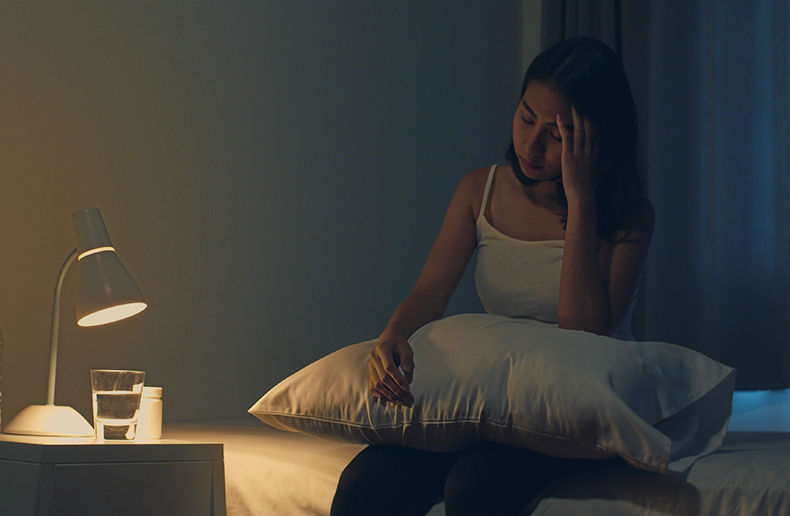A large number of Canadians are having a difficult time sleeping through the night, experiencing night terrors or insomnia, a situation which has been exacerbated by the COVID-19 pandemic.
Charles Morin, PhD, Canada Research Chair in Sleeping Disorders, told a webinar sponsored by SSQ Insurance in early May that researchers first noticed there was an international sleeping issue around April 2020, shortly after COVID-19 first appeared. At that time, an increasing number of everyday people were conducting Google searches of how to solve insomnia issues, said Morin.
His organization then initiated a large, international study and surveyed more than 22,000 people in 13 different countries about sleep issues. About 10 per cent of adults meet the criteria for some kind of insomnia disorder – and Canada, Brazil and the U.S. had the highest rates of insomnia compared to other countries. The lowest was China and Japan.
They then resampled a group in Quebec last May that had previously been questioned in 2018 in another study. Morin said of those who were good sleepers in 2018, one-third developed new insomnia situations during the pandemic. “The typical incidence rate – that is the number of new cases in any given year – is about four per cent. So we might have expected an incidence of eight per cent, but it was four times higher than that.”
Many determinants of problems were discovered during the pandemic: the survey showed anxiety was the biggest factor during the first few months. “A lot of us needed to make a lot of adjustments with regard to work, family obligations, schooling, social and leisure activity, more time spent indoors – clearly all those factors probably contributed to poorer sleep during the time of the pandemic,” he said.
Poor sleeping habits can be costly for companies
Poor sleeping habits can be costly for companies in terms of human resources, totalling about $5,000 a year, said Morin. Direct costs refer to the treatments initiated for sleep problems, which only amount to about 10 per cent of total costs. The rest stems from the loss of human resources due either to absenteeism or presenteeism (showing up for work without being productive, generally because of ill-health).
“There’s been a dramatic increase in the prevalence of insomnia and nightmares and for some people it has led to a significant shift in their sleep schedules,” said Morin. A lot of people are going to bed later and getting up later especially if they are working from home. But he pointed out that lying in bed more hours doesn’t necessarily translate into more and better sleep.
Before the pandemic hit, people were generally going to bed around 11:30pm and getting up around 7:30am. But since then, they’re been putting off hitting the sack until 12:30am and getting up around 8:45am, especially if they were working remotely.
Morin said a number of therapies to ease slumber have been developed over the years.
Valerian, a root most commonly used for sleep disorders, especially the inability to sleep, has shown some promising results but really they are results that are “still very modest,” he said. Other drug therapies for insomnia include benzodiazepines, but they too have their issues in that they leave residual effects, like confusion, far into the following day and there are some people who have trouble with motor co-ordination.
Some anti-depressants have been prescribed to help ease sleep because they include sedatives and may cause drowsiness, but they may not work well for sleep problems and warned they could cause bigger issues down the road.
Medication, said Morin, should be taken “as a rescue,” that is for short-term purposes only. While some drugs improve sleep continuity and sleep duration they can also have a negative impact on sleep stages and some drugs may decrease deep sleep, particularly benzodiazepines. There’s also the issue of drugs producing side effects and a risk of dependency.
Cognitive behavioural therapy
Morin said he is most in favour of cognitive behavioural therapy, a form of psychotherapy usually taught in six to eight visits that try to change the habits that cause the deeper problems associated with sleep, sleeping patterns and poor coping skills. It takes a few weeks to get CBT working well but it is more durable than drugs, he said, and it is important to get sleep under control.
“Sleep is an essential component of sustainable health. It is just as important as nutrition and exercise and we should not underestimate the impact of lack of sleep and poor sleep as they do carry a significant burden on individuals, employees and society at large.”




